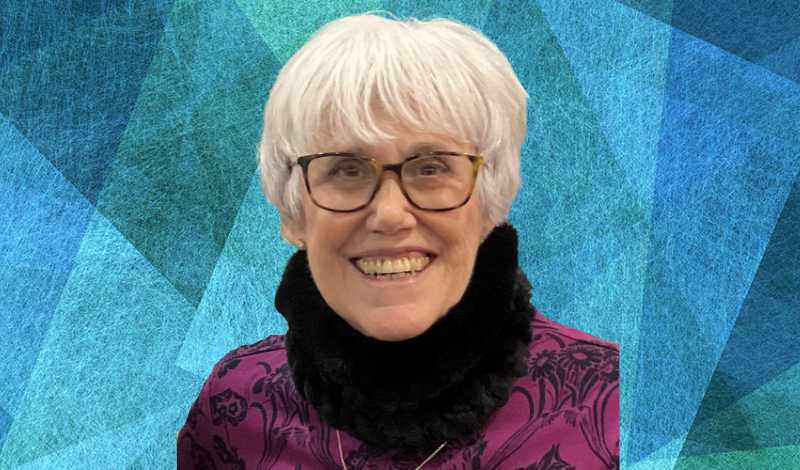
Every lung cancer diagnosis, without exceptions, is difficult. By the same token, some diagnoses are worse than others. Patients who are told that they have non-small cell lung cancer face a long, frightening, and arduous battle. In the not-too-distant past, the only treatment options were surgery (which, depending upon the stage of cancer, was not always an option), IV chemotherapy, and/or radiation. Further, the drugs available to treat the cancer were limited to one or two possibilities. If those did not successfully eradicate the disease, there was nowhere else to turn. Small cell lung cancer survival is an even more difficult path. For patients who were found to have small cell lung cancer, the options were even fewer. Even to this day, there is no cure for small cell lung cancer. Sadly, most people who are with small cell lung cancer will succumb to the disease just months after their diagnosis.
Small Cell Lung Cancer Survival – an Exceptional Story
Maida Mangiameli, a small cell lung cancer patient, has been in remission for six years. Now in her 70s, she continues to inspire us with her resilience and strength. Hers is an exceptional story steeped in determination, good fortune, and an indomitable spirit.
The Chicago area mother of two grown daughters quips that when she went to college, she learned how to be an elementary school teacher, how to play bridge, and how to smoke; a habit she would maintain for decades. When one of her daughters became pregnant, she implored her mother to stop smoking. It took Maida a full year to quit completely. Shortly after her smoking cessation, she developed a cough. It was bothersome enough that she went to urgent care to be checked out. Not long after having an x-ray at urgent care, she got a phone call.
Receiving her Small Cell Lung Cancer Diagnosis
A guy she had never seen or spoken to – before or since – called her and, without preamble, announced that she had lung cancer and that she needed to see her primary care physician. It was a harsh and cruel way to deliver the news. Thankfully, Maida has an unflappable energy and a wicked sense of humor, both of which served her well in coping with this news.
“I went to see an oncologist right away. There, I had extensive testing, including a PET scan, all of which confirmed my diagnosis: extensive small cell lung cancer. My husband, John and I had paid for and were thrilled to be going on a cruise to Bali and Australia that was to set sail soon after my diagnosis. Small cell lung cancer – and my doctor had other plans. The disease was so extensive that he strongly suggested I start chemo in two weeks. We had to cancel the cruise and, instead, I endured four rounds of chemotherapy and 28 days of radiation. While I had no pain, I was uncomfortable, exhausted, skeletal, and bald. It was a far cry from the cruise we’d been so excited to take.”
Small Cell Lung Cancer Survival Continues
Fast forward to the end of 2022. Maida began experiencing excruciating back pain. It quickly became debilitating, rendering her unable to reach for anything. Imaging would reveal four different tumors on four different vertebrae. She underwent precision-directed stereotactic radiation which managed to completely eradicate the pain. Although remnants of the tumor remain, she is fortunate to only battle occasional twinges but is free from pain. In fact, Maida feels so well that last summer when she visited her oncologist for her regular three-month scans she, with her signature chutzpah, suggested pushing the scans out to four months. Her doctor respectfully disagreed.
Grandmother’s Story Six Years Post Diagnosis
Even stronger than the disappointment over the scrapped vacation was Maida’s unbreakable determination to create and enjoy a relationship with her baby granddaughter. She had an intense need and desire to know her, to teach her, to experience life with her, to be a part of one another’s lives. Now six years post-diagnosis, Maida is enjoying a wonderful relationship with the now 7-year-old, who she credits with helping to keep her energy and spirit alive.
Small Cell Lung Cancer Survival – Living Proof of Hope
“I once said something to my oncologist about how, as a smoker, I had done this to myself. He was quick to correct me, noting that only 10-15% of smokers develop lung cancer and that no one ever really knows why some people get it while others do not. My purpose in life is to give purpose to people who are fighting small cell lung cancer. True, there is no cure, most people don’t live very long, and it is the deadliest of all lung cancers, yet I am still a vital human being, doing what I can to support other patients. I want people to understand that there is always hope. I am living proof of that.”
Advances in lung cancer research are increasing the chances of small cell lung cancer survival for many patients. New treatment discoveries – including combining treatments – are helping more and more small cell lung cancer patients. In addition, researchers have been working on identifying biomarkers specific to small cell lung cancer that have the potential of being key precision medicine factors in discovering more treatment protocols that could increase small cell lung cancer survival rates significantly.
I’m using my lungs to advocate
As a member of LCFA’s Speakers Bureau, I’m advocating for research and raising awareness through the media, embodying hope and action.
View Speaker Profile
